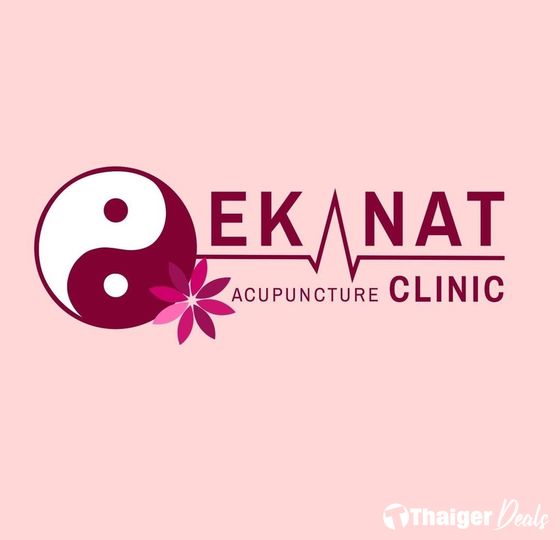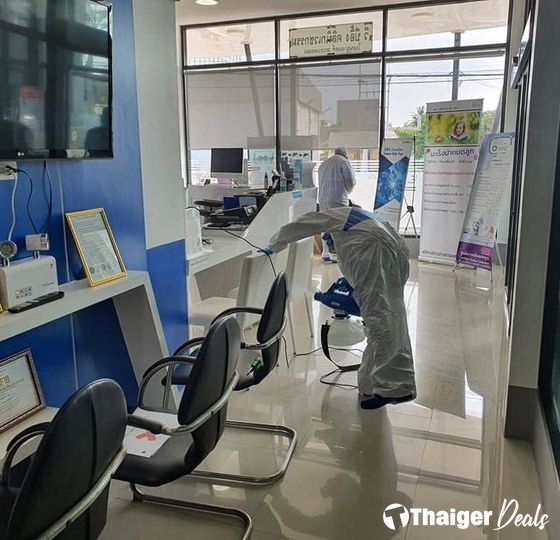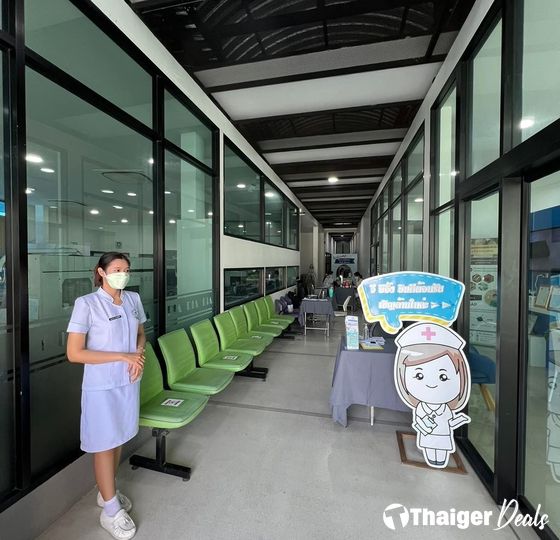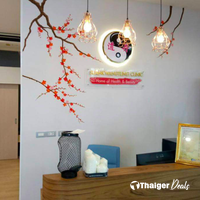Things to Know about Health & Medical Check Up
The human body is regarded as an extremely complex mechanism that deteriorates slowly over time, much like a machine. As a result, having a health check-up is so important in order to avoid risk factors that contribute to disease all over the body, while it is also recommended to regularly check up on your health conditions to prevent illness, as many people may not realize and believe they are healthy that an annual health check-up is not necessary. However, silent risk health issues may arise unconsciously.
With these factors in mind, it is recommended that younger people (18 and up) should have a health check-up at least once a year. On the other hand, the health check-up process begins with general questions about family history, medication history, blood pressure check, Body Mass Index (BMI), a blood test, x-ray, and ultrasound. In addition, the annual check-up will include the following tests among the elderly or those at risk of diabetes, high blood pressure, or coronary artery disease, as detailed below:
- Blood Sugar Test will screen for diabetes risk and assess glycemic control in diabetic patients.
- Chlorestoral Levels Test specifically checks for Cardiovascular & Cerebrovascular Diseases.
- Triglyceride Test is a blood test that measures the fat amount in your blood that may increase a heart stroke.
- Complete Blood Count Test (CBC) is another blood test that aids in the prevention of various disorders such as anemia and white blood cell abnormalities.
- Uric Acid Test is associated with Gout and Urolithiasis when you have too much uric acid in your body.
- Blood Urea Nitrogen (BUN) is used to detect renal problems if there is a waste product in our body.
- Liver Function Tests will measure the level of ALT and AST enzymes to determine how well the liver performs its normal functions.
- Hepatitis A, B, C, D, and E Tests will help reduce the risk of chronic inflammation that may cause cancer disease.
In addition to the previously mentioned health check-up, there is also a specific health check-up based on individual risks, as detailed below:
- Cancer Screening is the test to find cancer, which includes cervical cancer, ovarian cancer, breast cancer, prostate cancer, liver cancer, colon cancer and gastrointestinal cancer.
- Electrocardiogram Test monitors cardiac muscle problems and records the electrical signals of the heart.
- Ultrasound - Abdomen is a medical test to see inside the belly. For instance, there may be a lump or cyst in the uterus or ovary, fatty liver disease, or gallstone inside the abdomen.
- A chest X-ray is a screening test for heart and lung problems, as well as ribs and abnormal lumps.
- The Bone Mineral Density (BMD) Test is used to detect osteoporosis in people who are postmenopausal or elderly (aged 60 or older) and those who are addicted to alcohol or smoking.
- Allergy Test determines whether or not your body has allergic symptoms or diseases.
Furthermore, the annual check-up can be classified based on age, gender, and those who have been promoted the health check, particularly females, who are at higher risk than males with higher healthcare costs. Just after the health check-up, people who have an impact on people's physical and mental health must practice health behavior change and try to obtain early treatment.
The Prose of Health Check-Up
The health check-up is not only one of the screening tests for health check-ups, but it helps you to develop a healthcare plan for you and your family in the future. It is considered essential since one impacts the risk of disease factors, and clinicians can immediately develop and encourage the health behavior change while also helping you to reduce healthcare costs that may cost more money in the end to get the early treatment of the illness. In addition, it also elevates you to have a better quality of life.
When You Should Get a Health-Check Up
It is recommended to have a health or medical check-up once a year or when your body faces abnormalities, or for people over the age of 18, or to check based on age range or risk factors.
- Teenage: This age group is physically fit and healthy, with no illnesses. Their health check-up typically includes a Complete Blood Count (CBC), Blood Sugar Test, Body Mass Index (BMI), Liver Function Test, and other tests.
- Middle Adulthood: At this age, the body begins to deteriorate due to their healthcare, food, and well-being habits. As a result, in addition to the annual health check-up, there should be additional specialized health checks, such as Cancer Screening, particularly Cervical Cancer and Breast Cancer, Prostate Cancer, Electrocardiogram: ECG, Abdominal and Thoracic examinations for abnormalities in the body, Blood Pressure, and Heart Stroke Test.
- Old Age: People over the age of 60 will experience aging in addition to diseases. As a result, it necessitates special care, especially for illnesses caused by organ degeneration, such as brain, heart, kidney, liver cancer, colon cancer, and osteoporosis, which can easily result in bone fractures. In addition to the annual health check for this age, regular visits with specialists in various fields are required.
Preparation Before Getting a Health Check-Up
Patients should strictly follow the doctor's advice before getting a medical or health check-up in order to ensure an accurate diagnosis, and they must prepare themselves as follows:
- Avoid eating and drinking for 8-10 hours before your health check-up. (Sipping water is allowed.)
- Get enough sleep for at least 6-8 hours
- It is allowed to take medicine for those with a congenital disease, but they must notify the doctor or staff before getting the health checks.
- Avoid smoking and drinking alcohol 24 hours before getting the health checks.
- Women who are 7 days before or after their period time should not get the medical check-up because menstruation is contaminated in the urine, and the breast is engorged, making it difficult to detect breast cancer.
- Immediately inform staff to stop the X-ray test if you think you are pregnant.
- Any other health history or X-ray result should be brought with you for diagnosis.
Treatment After Getting a Health Check-Up
- After a health check-up, there may be a bruise from the blood test. Do not either press or massage because it may result in the rupture of blood vessels. This bruise will fade within 1-2 weeks.
- Health check-up patients will receive a health check report, the duration of which will be determined by the check-up lists. If any abnormalities are discovered, the doctor will immediately provide additional advice so that you can properly plan your healthcare, or if any serious abnormalities are found, you will be referred to a specialist in that field for further treatment.
Recovery Period After Getting a Health Check
There is usually no waiting period after having a health check, and you can resume your normal life. It is exceptional for endoscopy of the gastrointestinal tract since the doctor will give sleeping pills. After receiving a health check, it necessitates recuperating for 1-2 hours. Do not drive or work after one day of testing, and you should bring relatives to help you get home safely.
Who Should Get A Medical & Health Check-Up
The health check-up is available to all people over the age of 18, regardless of gender, except for those in high-risk groups. For instance, those who have a family member with a serious illness or a drug history or who consume alcohol and smoke heavily so that they can plan for themselves or their loved ones properly with good health.









